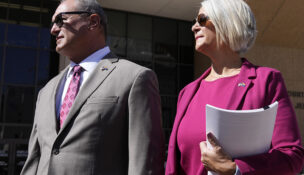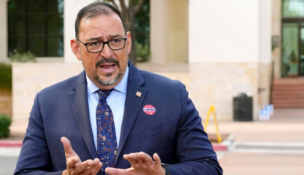State strikes deal to end voter lawsuit
Howard Fischer, Capitol Media Services//January 6, 2020//[read_meter]
State strikes deal to end voter lawsuit
Howard Fischer, Capitol Media Services//January 6, 2020//[read_meter]
State officials have agreed to alter procedures to ensure that Arizonans who change address aren’t turned away at the polls because their voter registrations have not been updated. The deal...
No tags for this post.

















